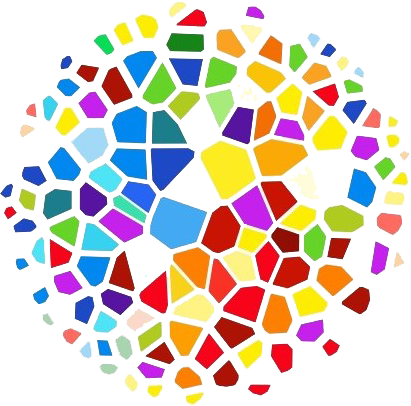Sensing the Unknown
Take a look at this picture. Notice anything unusual about it? Do you know what is in the jar after looking at the picture, or is the content still unknown? Look closely.
The label on the jar says “Red currant fruit spread.” However, the picture on the label shows pomegranates. Still, with closer visual examination, the texture of the spread looks like strawberry fruit spread, which is more common and a likely candidate for the fruit spread.
So, how can you know what is in the jar?
Well, you can call the manufacturer. Employees may or may not be able to give you the answer. In turn, you may or may not believe the answer, depending on your degree of trust in the company and its people.
You can send the fruit jam to a lab for analysis. Provided that the lab can differentiate between red currants, pomegranates, and other berries, provided that it has equipment for this type of testing, provided that you are willing to wait some weeks and spend some money, you may get your answer. Again, you may or may not trust the answer.
You can also taste the fruit spread.
If you have had experience with both red currents and pomegranates (having tasted them when they were correctly labeled), and expertise (for example, having learned to reliably differentiate between the two by taste), it will help you know what you are dealing with.
Yet, even if you don’t have expertise or experience with these specific items, your experience with more common berries like raspberries and strawberries may at least help you determine what this mysterious fruit spread “is not”. So, experience and expertise when it comes to sensing is used broadly. You may not be able to explain the taste difference between strawberries and pomegranates, but if you are familiar with at least one of them through your senses rather than in theory, it is already useful to sense the difference..
Your sense of the unknown may often be your best bet for evaluating what you are dealing with, whether or not you can explain how you know what you know.
When you sense the unknown, you will rarely get “nothing”. In some cases, you will get a sense for your preferences, on other cases – for probabilities of certain outcomes, or for your impulse to act a certain way in case the unknown takes a particular shape.
By all means, incorporate all the “hard” data you can get as you explore the unknown. Consider a relationship: look at divorce rates for a particular demographic, conduct compatibility surveys, seek expert relationship advice, or perform family background checks. And still, the fate of your relationship will remain unknown. To get a better understanding of the unknown, get a sense for your potential partner, and it can help you experience some of what the relationship may bring. Quantifiable? Not so much. Useful? Most certainly.
Just as we cultivate intellect and sequential analysis skills, we need to cultivate our sensing abilities. You may ask “why”, since we sense all the time anyway. Yes, our senses are already better “trained” than we may give them credit for. And yet, we can learn to sense more attentively.
Most of us think, and yet, there are books and courses on thinking better.
We all breathe, and yet, through yoga, Lamaze, athletic training, and meditation we can learn to breathe better under different circumstances.
Train your senses in order to experience, to know, and to understand more fully.
Experiment: think through a problem, and then also sense through a problem. What I mean by “sense through a problem” is: if you lost capacity for words, how would this problem feel to you in terms of mood, comfort, flashbacks, energy level? How would you experience it if you couldn’t talk about it? Then, compare your intellectual assessment with your sensory assessment.
Would you drop me a line at Alina@AlinaBas.com and let me know how it goes?
(If you liked this article, you may also enjoy reading this: A way through uncertainty).
NEW CHAPTER
My advisor and I recently co-authored a chapter for the Handbook of Intuition Research as Practice. You can request a free e-copy of the chapter, Intuition: Scientific, Non-scientific, or Unscientific? HERE.
NEW CLASS
If you are interested in understanding intuition, please register to join me for a free small group zoom conversation on Thursday, September 24, 2020, 9:00-10:30 pm EST to discuss the chapter, Intuition: Scientific, Non-scientific, or Unscientific?, and participate in a Q&A about what scientists and practitioners know about intuition.




